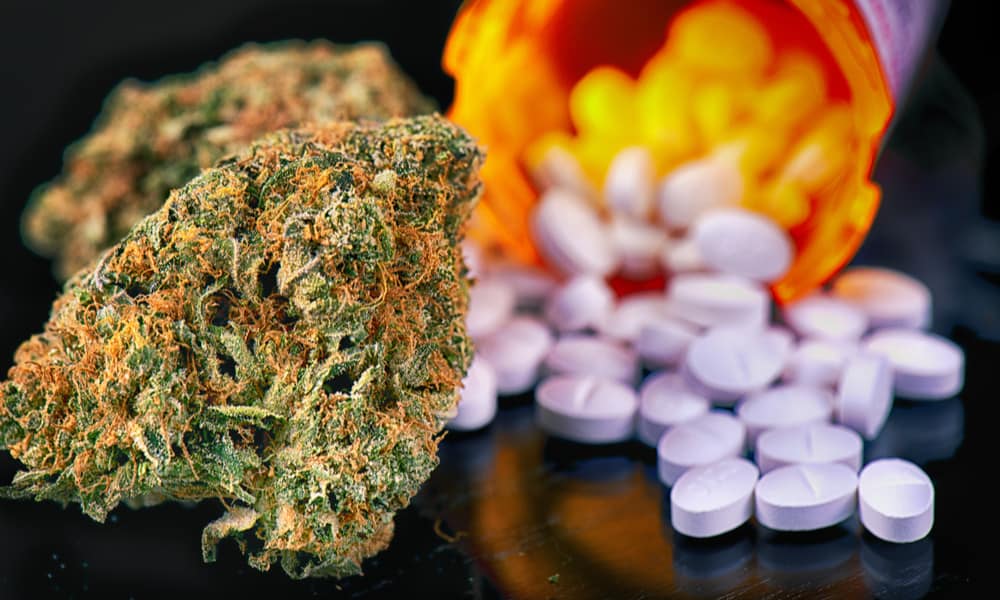Written by: Keith Grevenitz
Shots have been fired at the opioid industry. The founder of the Chandler, Arizona based Insys Therapeutics Inc, John Kapoor was sentenced to 5 1⁄2 years in prison last month on charges of fraud and bribery. Chief Executive, Michael Babich was sentenced to 30 months in prison last Thursday. The pharmaceutical giant was responsible for rewarding prescribers of their Fentanyl-based drug, ‘Subsys‘ with monetary incentives.
The company also funded opposition to Arizona cannabis legalization in 2016 with a $500,000 contribution in hopes to benefit its opioid and potential synthesized cannabis markets in the state.
In a strange turn of events, the company announced it would sell off its opioid assets and has positioned itself to pivot towards becoming solely a cannabis company. With a cannabis initiative returning to the 2020 ballot in Arizona, one can only wonder if this flip will bode well for the bill passing. Big contributions from Harvest Health And Recreation Inc. and Medmen Enterprises Inc. could push the legalization effort into fruition.
The 2020 Arizona Medical Marijuana bill designated HB2049, section 03, intends to add Autism and Opioid Use Disorder to the list of qualifying conditions for a cardholder klik her.
3. “Debilitating medical condition” means one or more of the following: (a) Cancer, glaucoma, positive status for human immunodeficiency virus, acquired immune deficiency syndrome, hepatitis C, amyotrophic lateral sclerosis, Crohn’s disease, OPIOID USE DISORDER, AUTISM SPECTRUM DISORDER or agitation of Alzheimer’s disease or the treatment of these conditions.
Opioid Use Disorder or OUD has been vaguely defined as a “problematic pattern of opioid use”. The way OUD is defined leaves a lot of leeway for those who could benefit from substituting cannabis for opiates. On average, 130 Americans die every day from opioid use. In April of 2019, Federal Prosecutors charged 60 doctors, pharmacists, medical professionals, and business executives in connection with alleged opioid pushing and healthcare fraud. The cases involved 350,000 prescriptions of more than 32 million pills in just Ohio, Kentucky, Tennessee, Alabama, and West Virginia. Arizona is no stranger to the opioid crisis.
In Tucson, an Arizona dispensary has close ties with an indicted pain management doctor. Dr. David Alan Ruben, the father of Desert Bloom Relief dispensary owner Aari Ruben, was indicted by a grand jury on 26 felony charges in 2018 related to fraud and schemes to prescribe opioid-based drugs. In 2016 Arizona Medical Board determined that Ruben was writing scripts to people who plain didn’t need them and at inappropriate doses. The board decreed that Ruben would be suspended from being able to prescribe any Schedule II controlled substances for two years. Ruben continued prescribing until his medical license was suspended in 2017. With any luck, former patients of the indicted pain management doctor could make a quick segue to his son’s dispensary just a mile or so down the road. It has been a slow and arduous battle, but the cannabis industry seems to be seeing a light at the end of the tunnel. In regards to the opioid epidemic, cannabis just might be its savior.

About the writer:
Keith Grevenitz graduated with bachelor’s degrees in Creative Writing and English from the University of Arizona. He is a liberal, an activist, and a knowledgeable cannabis guru who formerly worked in marketing and compassionate care. Currently, Keith is venturing into a harm reduction alcohol startup that hopes to prevent liver damage, hangovers, and other harmful effects of alcohol consumption. Interests include playing blues guitar, collecting and appreciating art, psychedelic research/legalization, the science of cannabis, and the fight for equity and justice for all mankind.


